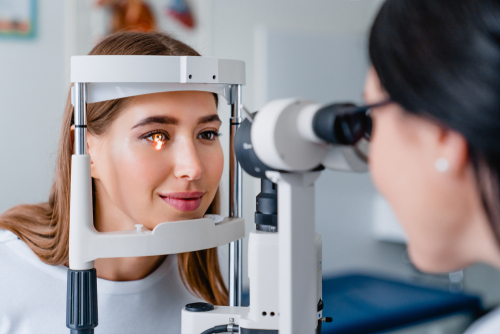

Have you recently questioned if you need to make an appointment to have your eyes checked each year? You may have put off scheduling one because you’re not sure you need it.
You may not think you have a reason to get an eye exam, especially if your eyesight seems fine right now. It may surprise you to know that you should be keeping up with your yearly appointments to have your eyes examined.
Continue reading to find out why it’s important to see your eye doctor every year!
You should have an eye exam every year to make sure that there haven’t been any changes to your vision since your eyes were last checked. You’ll need to go more frequently if you wear corrective lenses.
Have you been getting headaches more frequently? You may not realize that staring at your computer screen for many hours each day can cause eye strain. This can lead to vision problems if it’s left unchecked.
By getting your eyes checked regularly, your eye doctor can spot changes in your vision. They can prescribe the correct visual aids to help keep your eyes strong and healthy.
These visual aids may be in the form of reading glasses, which can help with headaches or a stronger prescription for glasses or contact lenses.
If you don’t get your eyes checked regularly, a disease may damage the blood vessels in your retina. This can cause you to have blurry vision, loss of vision, night blindness, and difficulty identifying certain colors.
By having regular eye exams, your ophthalmologist can catch early signs of diseases and help to prevent or cure them. This is often before they’re able to progress to the point that vision loss occurs.
This includes diseases and eye conditions like:
Glaucoma can cause irreversible blindness if it’s left untreated. Pressure builds up in the eye (usually painlessly) and causes damage to the optic nerve
Retinal detachment affects the membrane at the back of your eye that allows you to see. Symptoms include blurred vision, flashes of light, and floaters.
Diabetic retinopathy occurs when someone has diabetes, but you’re more likely to develop it early if diabetes isn’t under control. Symptoms of this condition include blurry vision, loss of vision, night blindness, floaters, and finding it harder to identify colors.
Having high blood sugar because of diabetes damages the blood vessels in the retina.
This happens as a result of uncontrolled high blood pressure. Symptoms are having burst blood vessels in your eye, headaches, double vision, and swollen eyes.
You may not experience any symptoms during the early stages of this eye disease. As it progresses, you may lose your central vision and need bright light to see by.
With this condition, your vision may be blurry or hazy.
Having an eye exam can also help to diagnose medical conditions in their early stages. By providing a clear view of your blood vessels, a complete eye exam can discover serious health problems even before symptoms appear.
Many diseases don’t have symptoms in their early stages. Your eye doctor may be able to spot certain health problems like diabetes, lupus, or high blood pressure before a primary care physician can.
Can’t remember when your last eye exam was? Schedule one at Advanced Eye Care in New Lenox, IL, now with one of our ophthalmologists, and get your eyes back on the road to health and happiness!